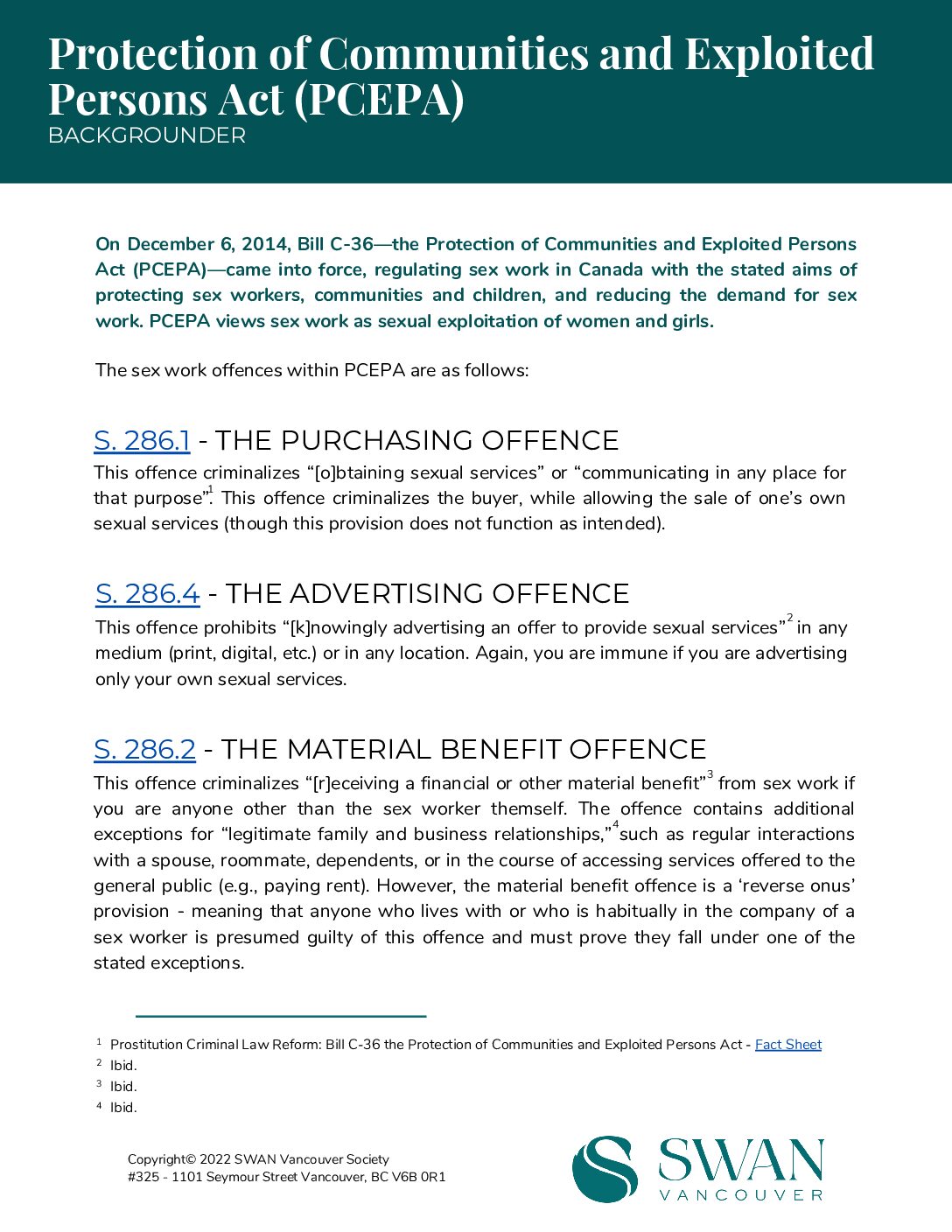On December 6, 2014, Bill C-36—the Protection of Communities and Exploited Persons Act (PCEPA)—came into force, regulating sex work in Canada with the stated aims of protecting sex workers, communities, children and reducing the demand for sex work. PCEPA views sex work as sexual exploitation of women and girls.
PCEPA offences:
S. 286.1 - THE PURCHASING OFFENCE
This offence criminalizes “[o]btaining sexual services” or “communicating in any place for that purpose”.¹ This offence criminalizes the buyer, while allowing the sale of one’s own sexual services (though this provision does not function as intended).
S. 286.4 - THE ADVERTISING OFFENCE
S. 286.2 - THE MATERIAL BENEFIT OFFENCE
S. 286.3 - THE PROCURING OFFENCE
This offence criminalizes “[p]rocuring a person to offer or provide sexual services”.5 This offence includes the prohibition of any “recruiting, holding, concealing or harbouring”6 of a person in order to facilitate the purchase of sexual services (effectively conflating sex work with human trafficking).
Subsection 213(1.1) - THE COMMUNICATING OFFENCE
This offence prohibits “[c]ommunicating for the purposes of offering or providing sexual services… in public places that are or are next to school grounds, playgrounds or daycare centres”7 (contradicting asymmetrical criminalization by targeting street-based sex workers).
For a more in-depth look, see SWAN’s analysis of PCEPA.
for the full list of resources

